OpenHarmony基线功能之文件管理

概述
文件管理作为操作系统的一个核心基本功能,为每个应用开发者所关注,操作系统本身的许多功能亦基于文件,而对于应用来说,可以说没有文件系统,就不能有应用的业务,可能会有很多人反驳,可以把数据保存到数据库,但数据库归根结底还是文件。大家在HarmonyOS官网看API参考时,可以看到OpenHarmony提供了三种API:JAVA API参考、Native API参考和JS API参考。
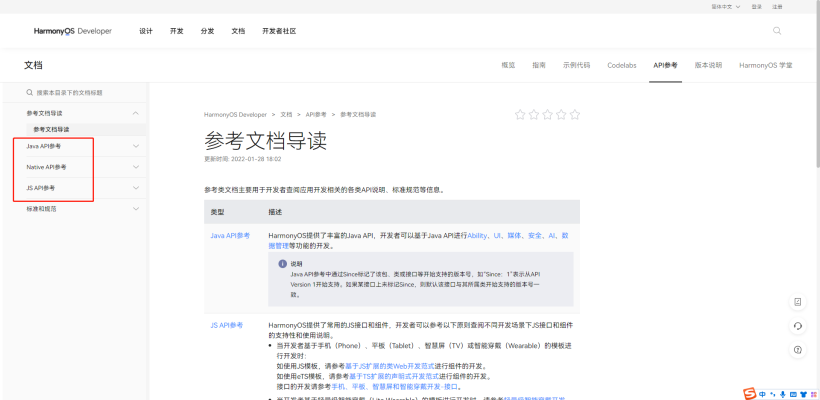
https://developer.harmonyos.com/cn/docs/documentation/doc-references/reference-document-outline-0000001115016824。
本文将重点关注文件管理部分的API,试图厘清文件管理在OpenHarmony如何从应用到操作系统,如何工作的。重点梳理三个方面:
- 文件管理都有哪些接口供应用调用。
- 怎么调用到操作系统的。
- 操作系统怎么工作的。
希望读者能尽可能多的参与进来一起评论,查漏补缺,以便笔者逐步完善内容,让开源越来越好。
接口
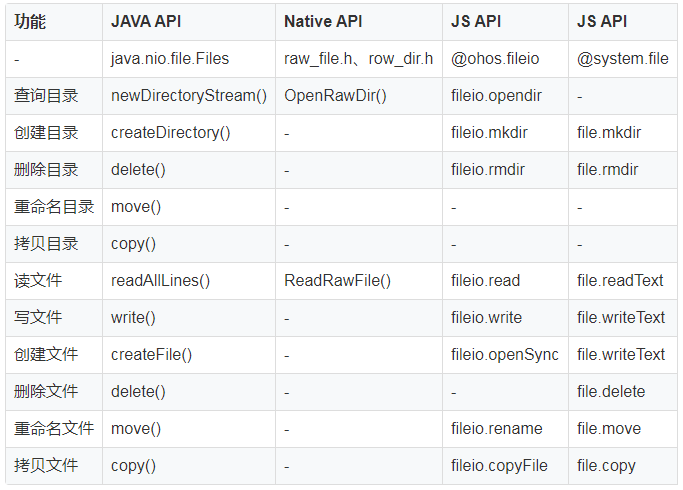
备注:
1、限于表格限制,不会列所有,详细可以查阅官方api文档:https://developer.harmonyos.com/cn/docs/documentation/doc-references/files-0000001054678506#ZH-CN_TOPIC_0000001054678506__createFile-java_nio_file_Path-java_nio_file_attribute_FileAttribute___-。
2、Native API也可以用标准c、c++进行文件操作。
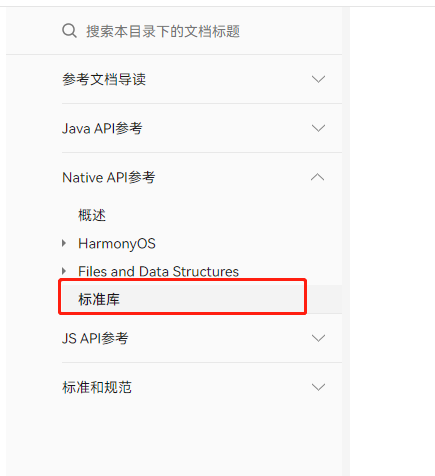
3、JS API @ohos.fileio提供了三种调用方式,分别是Promise、Callback和同步方式。
4、@ohos.fileio:基于手机(Phone)、平板(Tablet)、智慧屏(TV)或智能穿戴(Wearable)的模板进行开发时使用。
5、@system.file:基于轻量级智能穿戴(Lite Wearable)的模板进行开发时使用。
JS API文件接口的使用
接口文档中都提供了样例,开发者可以比较清楚地知道怎么调用API以实现功能。
import fileio from '@ohos.fileio';
let fd = fileio.openSync(path, 0o2);
let buf = new ArrayBuffer(4096);
let res = await fileio.read(fd, buf);
打开DevEco Studio 3.0.0.800,在应用代码中调用JS API样例。
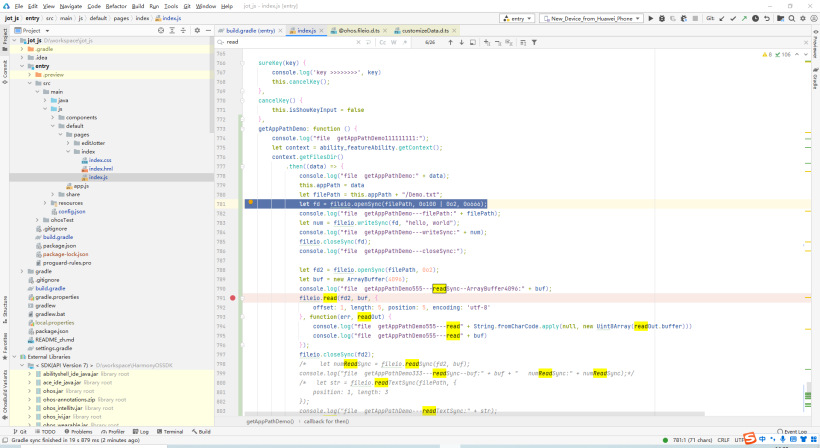
可以看到@ohos.fileio定义在External Libraries/Gradle:ACE JS-common-3.0.0.1\common里面。
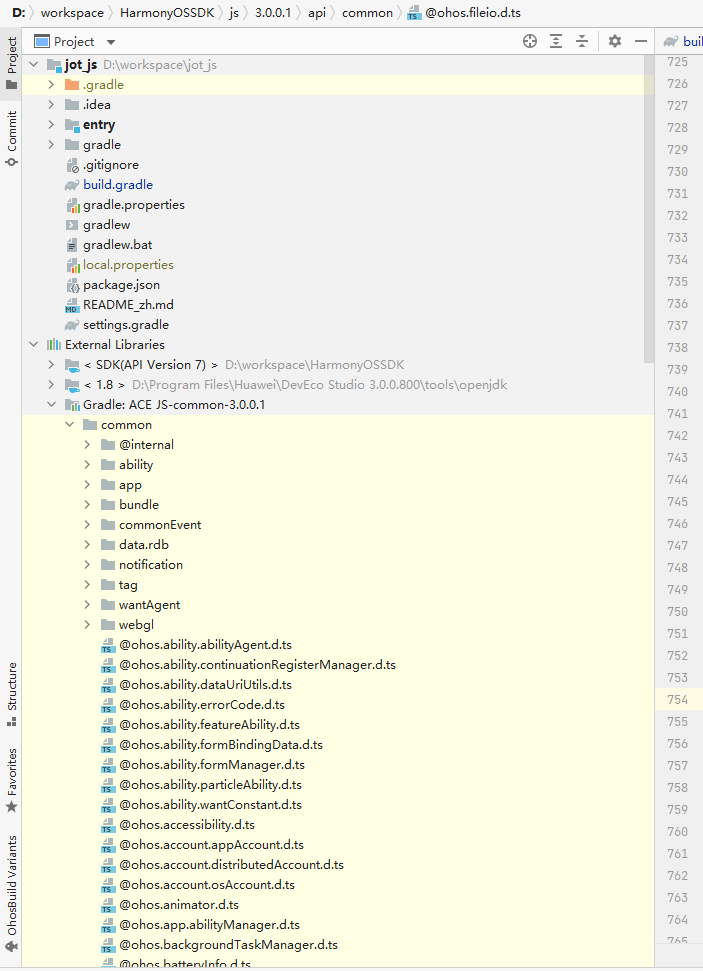
打开@ohos.fileio.d.ts可以看到所有函数的定义。
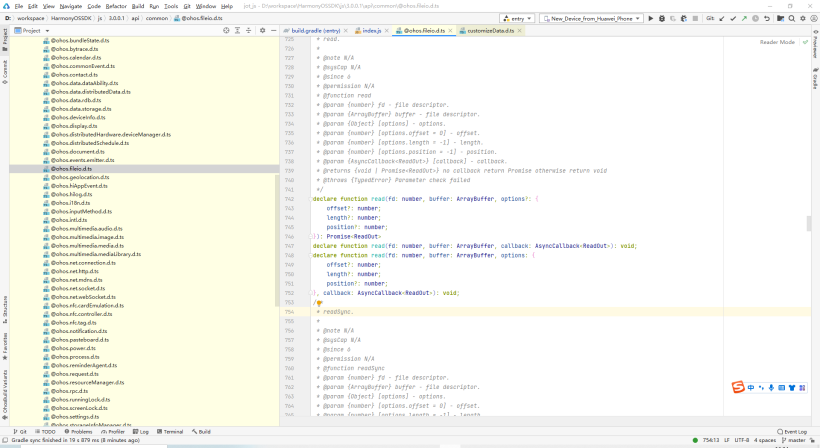
这里出现了一个大问号,为什么只有定义没有实现呢?这里就引入下一章节,是所有JS API的通用技术,并非文件管理专有。因为OpenHarmony是基于Linux的,最终要调用到c实现,对于JAVA API应该是调用到JAVA虚拟机直接进行文件操作,java也是c实现的,Native API直接调用c函数实现,所以这里只追一下JS API是如何实现调用到操作系统api的。
NAPI
NAPI:JavaScript API框架。
介绍比较全面的,可以参见(https://harmonyos.51cto.com/posts/8390)。
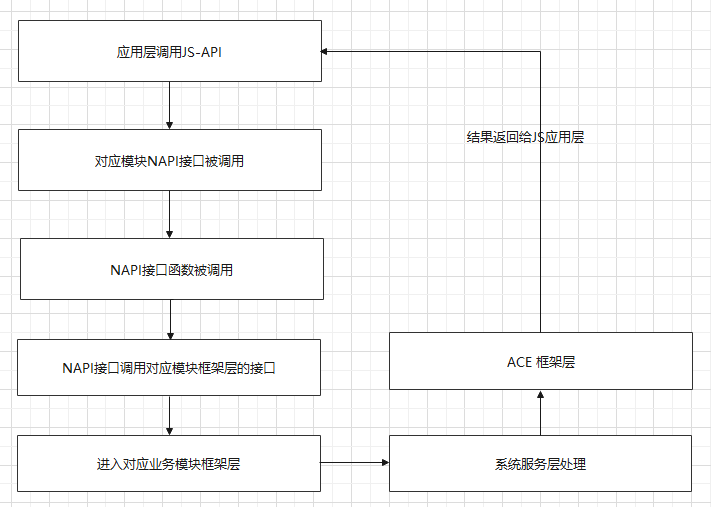
模块都有一个export()方法,将js的api映射到具体的c++函数。
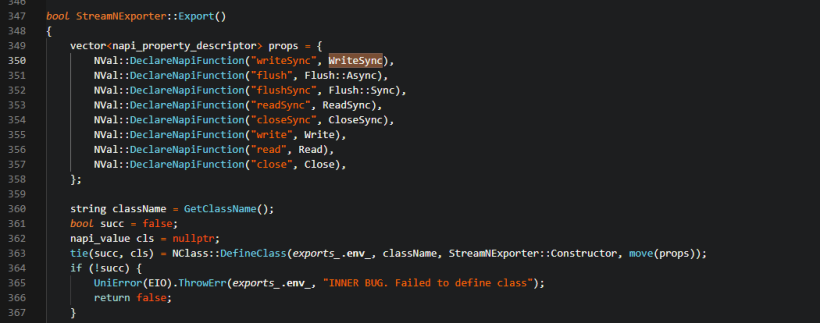
实现
以@fileio.read和@fileio.readSync为例:
${KaihongOS}\foundation\distributeddatamgr\distributedfile\interfaces\kits\js\src\mod_fileio\class_dir\dir_n_exporter.cpp。
napi_value DirNExporter::Read(napi_env env, napi_callback_info info)
{
NFuncArg funcArg(env, info);
if (!funcArg.InitArgs(NARG_CNT::ZERO, NARG_CNT::ONE)) {
UniError(EINVAL).ThrowErr(env, "Number of arguments unmatched");
return nullptr;
}
auto dirEntity = NClass::GetEntityOf<DirEntity>(env, funcArg.GetThisVar());
if (!dirEntity) {
UniError(EIO).ThrowErr(env, "Cannot get entity of Dir");
return nullptr;
}
if (!dirEntity || !dirEntity->dir_) {
UniError(EBADF).ThrowErr(env, "Dir has been closed yet");
return nullptr;
}
DIR *dir = dirEntity->dir_.get();
auto arg = make_shared<DirReadArgs>(NVal(env, funcArg.GetThisVar()));
auto cbExec = [arg, dir, dirEntity](napi_env env) -> UniError {
struct dirent tmpDirent;
lock_guard(dirEntity->lock_);
errno = 0;
dirent *res = nullptr;
do {
res = readdir(dir);
if (res == nullptr && errno) {
return UniError(errno);
} else if (res == nullptr) {
return UniError(ERRNO_NOERR);
} else if (string(res->d_name) == "." || string(res->d_name) == "..") {
continue;
} else {
tmpDirent = *res;
break;
}
} while (true);
arg->dirRes = tmpDirent;
return UniError(ERRNO_NOERR);
};
auto cbCompl = [arg](napi_env env, UniError err) -> NVal {
return DoReadCompile(env, err, arg);
};
NVal thisVar(env, funcArg.GetThisVar());
if (funcArg.GetArgc() == NARG_CNT::ZERO) {
return NAsyncWorkPromise(env, thisVar).Schedule("fileioDirRead", cbExec, cbCompl).val_;
} else {
NVal cb(env, funcArg[NARG_POS::FIRST]);
return NAsyncWorkCallback(env, thisVar, cb).Schedule("fileioDirRead", cbExec, cbCompl).val_;
}
}
1、读取参数。
2、递归读取路径readdir。
3、返回Promise或者回调。
napi_value DirNExporter::ReadSync(napi_env env, napi_callback_info info)
{
NFuncArg funcArg(env, info);
if (!funcArg.InitArgs(NARG_CNT::ZERO)) {
UniError(EINVAL).ThrowErr(env, "Number of arguments unmatched");
return nullptr;
}
DirEntity *dirEntity = GetDirEntity(env, info);
if (!dirEntity || !dirEntity->dir_) {
UniError(EBADF).ThrowErr(env, "Dir has been closed yet");
return nullptr;
}
struct dirent tmpDirent;
{
lock_guard(dirEntity->lock_);
errno = 0;
dirent *res = nullptr;
do {
res = readdir(dirEntity->dir_.get());
if (res == nullptr && errno) {
UniError(errno).ThrowErr(env);
return nullptr;
} else if (res == nullptr) {
return NVal::CreateUndefined(env).val_;
} else if (string(res->d_name) == "." || string(res->d_name) == "..") {
continue;
} else {
tmpDirent = *res;
break;
}
} while (true);
}
napi_value objDirent = NClass::InstantiateClass(env, DirentNExporter::className_, {});
if (!objDirent) {
return nullptr;
}
auto direntEntity = NClass::GetEntityOf<DirentEntity>(env, objDirent);
if (!direntEntity) {
return nullptr;
}
direntEntity->dirent_ = tmpDirent;
return objDirent;
}
1、读取参数。
2、读取路径:readdir。
3、返回获取到的路劲信息objDirent。
都会调到c语言标准函数。

 蜀ICP备20004578号
蜀ICP备20004578号